Differences
This shows you the differences between two versions of the page.
|
camda [2014/12/16 13:11] okko [CAMDA - What is CAMDA?] |
camda [2015/01/29 22:55] (current) dkreil [CAMDA - What is CAMDA?] |
||
|---|---|---|---|
| Line 2: | Line 2: | ||
| - | The Big Data explosion forms one of the grand challenges in the modern life sciences. Analysing large data sets is emerging to one of the scientific key techniques in the post genomic era. Still the data analysis bottleneck prevents new biotechnologies from providing new medical and biological insights in a larger scale. The growing need for the analysis of massive data is mainly driven by high throughput sequencing technologies and the increasing size of biomedical studies. | + | The increasing relevance of Big Data forms one of the grand challenges in modern life sciences. Analysing large data sets is consequently emerging to be one of the scientific key techniques in the post genomic era. Recently, the growing need for the analysis of massive data has further accelerated by the advent and fast development of high-throughput next-generation sequencing technologies and the necessarily increasing cohort size of biomedical studies. Still the data analysis bottleneck limits the rate with which technological advances in genome-scale experimental platforms actually can provide new medical and biological insights. |
| - | CAMDA focuses on the analysis of massive data in life sciences. It introduces and evaluates new approaches and solutions to the Big Data problem. The conference presents new techniques in the field of bioinformatics, data analysis, and statistics for the handling and processing large data sets, the combination of multiple data sources, and computational inference. | + | |
| - | An essential part of CAMDA is its open-ended data analysis challenge which focuses on big heterogeneous data sets. Academic and industrial researchers worldwide are invited to take the CAMDA challenge. Accepted contributions are presented in short talks (30 mins), and the results of analyses are discussed and compared at the CAMDA conference. Both contestants and other interested researchers are welcome at the meeting. Posters can provide an additional opportunity of presenting and discussing work. All individuals and groups from both academic and commercial entities are invited to join the award competition. | + | CAMDA focuses on the analysis of massive data in the life sciences. It introduces and evaluates new approaches and solutions to the Big Data challenge. The conference presents new techniques in the field of bioinformatics, data analysis, and statistics for the handling and processing of large data sets, the combination of multiple data sources, and effective computational inference. |
| - | CAMDA has a track record as a well-recognized annual conference going back to the year 2000. It soon received considerable attention from high impact journals like Nature (ref. 1, 2) and was featured in an editorial in Nature Methods in 2008 (ref. 3). Recently called the 'Olympics for Genomics', this allusion indicates the ambitious and wide-ranging nature of the contest. The meeting has regularly been supported by organizations like EMERALD, the FDA, and the NIST. | + | An essential part of CAMDA is its open-ended data analysis challenge which focuses on big complex data sets, often featuring heterogeneous data sources and types. Academic and industrial researchers worldwide alike are invited to take the CAMDA challenge. Accepted contributions are presented in short talks (30 mins), and the results of analyses are discussed and compared at the CAMDA conference. Both contestants and other interested researchers are welcome at the meeting. Posters can provide an additional opportunity of presenting and discussing work. All individuals and groups from both academic and commercial entities are invited to join the award competition. |
| + | |||
| + | CAMDA has a track record as a well-recognized annual conference going back to the year 2000. It soon received considerable attention from high impact journals like Nature (ref. 1, 2) and was featured in an editorial in Nature Methods in 2008 (ref. 3). Recently called the 'Olympics for Genomics', this allusion indicates the ambitious and wide-ranging nature of the contest. The meeting has regularly been supported by high-profile organizations like FDA, and the NIST. | ||
| As in past years, contest presentations are complemented by high profile keynotes. Recent keynote speakers include Benjamin Blencowe (Toronto), Sandrine Dudoit (Berkeley), Mark Gerstein (Yale), Jelle Goeman (Leiden Univ. Medical Centre), Martin Morgan (Hutchinson Cancer Research Center), Wei Pan (Minnesota), John Quackenbush (Dana Farber Cancer Institute, Harvard Medical School), Eran Segal (Weizmann Institute), Terry Speed (WEHI), John Storey (Princeton), Weida Tong (NCTR/FDA), Olga Troyanskaya (Princeton), Ernst Wit (Groningen), Atul Butte (Stanford), and Nikolaus Rajewsky (Max-Delbrück-Center). | As in past years, contest presentations are complemented by high profile keynotes. Recent keynote speakers include Benjamin Blencowe (Toronto), Sandrine Dudoit (Berkeley), Mark Gerstein (Yale), Jelle Goeman (Leiden Univ. Medical Centre), Martin Morgan (Hutchinson Cancer Research Center), Wei Pan (Minnesota), John Quackenbush (Dana Farber Cancer Institute, Harvard Medical School), Eran Segal (Weizmann Institute), Terry Speed (WEHI), John Storey (Princeton), Weida Tong (NCTR/FDA), Olga Troyanskaya (Princeton), Ernst Wit (Groningen), Atul Butte (Stanford), and Nikolaus Rajewsky (Max-Delbrück-Center). | ||

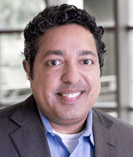
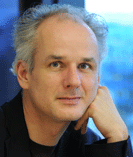
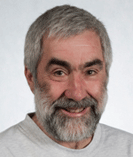
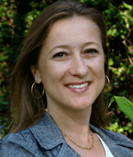
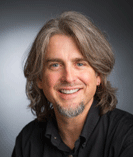
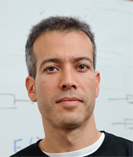
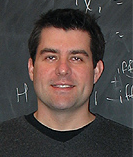
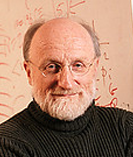
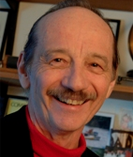





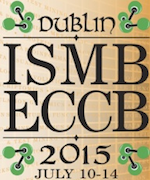




STAY CONNECTED
Tweet